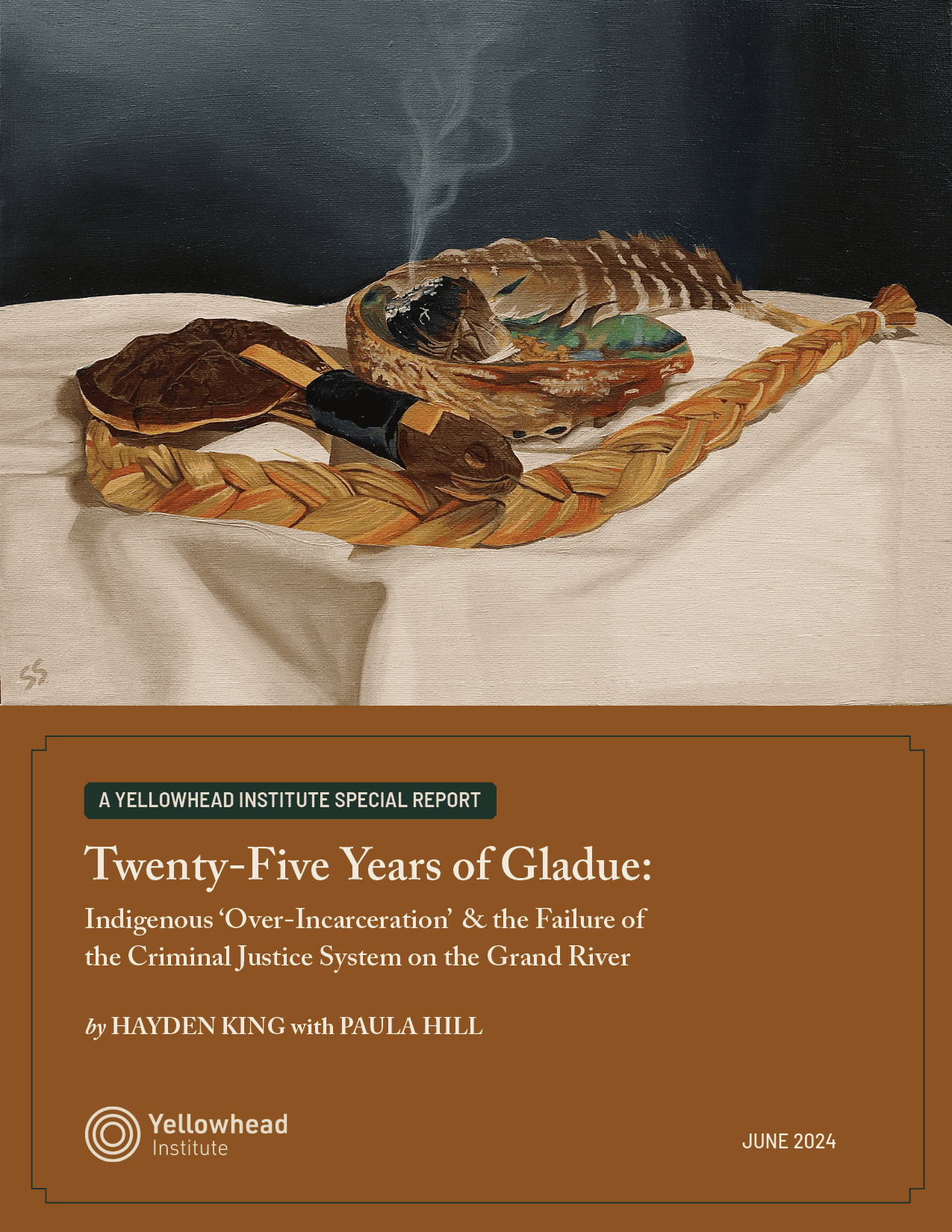- About
- Research
-
-
- Special Reports & Features
- The Rematriation of Indigenous Place Names
- Braiding Accountability: A Ten-Year Review of the TRC’s Healthcare Calls to Action
- Buried Burdens: The True Costs of Liquified Natural Gas (LNG) Ownership
- Pretendians and Publications: The Problem and Solutions to Redface Research
- Pinasunniq: Reflections on a Northern Indigenous Economy
- From Risk to Resilience: Indigenous Alternatives to Climate Risk Assessment in Canada
- Twenty-Five Years of Gladue: Indigenous ‘Over-Incarceration’ & the Failure of the Criminal Justice System on the Grand River
- Calls to Action Accountability: A 2023 Status Update on Reconciliation
- View all reports.
- Special Reports & Features
-
-
- Yellowhead School
-
- The Treaty Map
- LIBRARY
- Submissions
- Donate
This report, a collaboration between the Brantford Regional Indigenous Support Centre (BRISC) and Yellowhead Institute, examines the emergence of the Gladue Principle and its application in Canada, with specific attention to Gladue on the Grand River.
We find that despite the attempt to incorporate elements of restorative justice in the courts and consider the systemic impacts of colonialism in sentencing, Gladue has not realized its promise. This was the conclusion of participants at a BRISC workshop in March 2024. They identified four key challenges: 1) disorganized processes and a lack of information, 2) limited resources for rehabilitation, restoration and Gladue Workers, 3) the rise of self-identification and identity fraud, and 4) failure to support victims, families and communities. These concerns reflect broader national challenges, which are also addressed in the report with a review of recent policy literature on Gladue.
KEY QUESTIONS
- Does the Gladue Principle actually address the “over-incarceration” of Indigenous people?
- What are the barriers to the effective implementation of Gladue?
The modest, incremental, and ad hoc approaches to change in the system only bend it back toward the violence we're all so well acquainted with - and Indigenous families, communities, and Indigenous women especially - experience it disproportionately.
- Hayden King & Paula Hill

